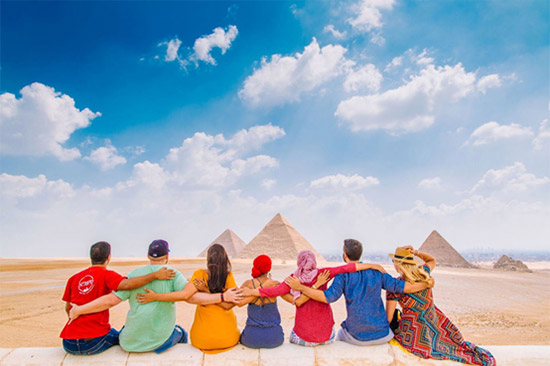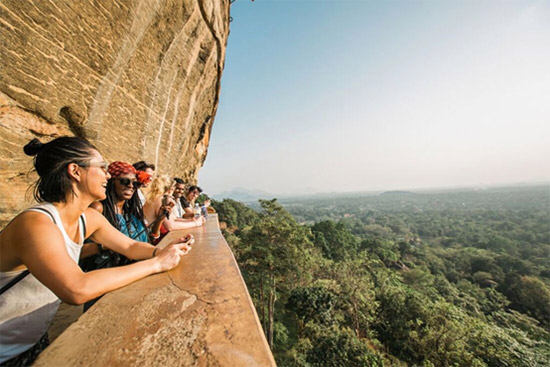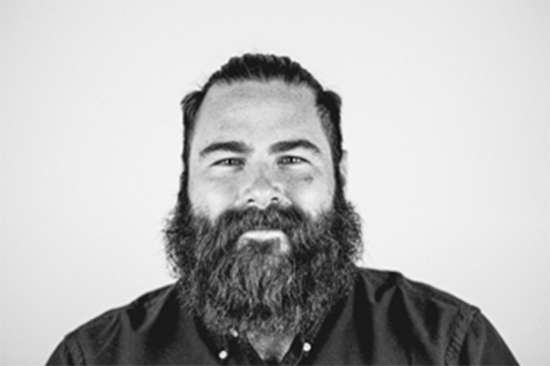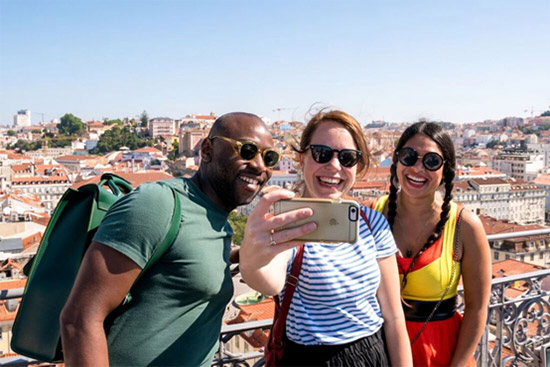
|
李·巴恩斯知道你在想什么,因為他也曾經有過同樣的疑惑。大概一年前,他出任Intrepid集團的首席目標官時也想知道:首席目標官到底是做什么的? 首席目標官可不是號稱“很有趣,認真的!”之類初創企業里隨便想出的花哨頭銜,巴恩斯這份新工作承擔著巨大的責任,遠遠超出了Intrepid集團自身范疇。談不上拯救世界,要說不拯救也不準確。 首先,如果了解一點公司背景,就能夠更容易理解他這份工作的意義。1989年,一對澳大利亞朋友在非洲大陸旅行后成立了Intrepid集團,目前旗下有四家旅行社,還有一家旅游目的地管理公司(幫旅行社組織活動的本地專家),在全球有20多個辦事處,還有一家非營利性基金會。該公司向來目標明確,舉例來說,其設計的旅游路線很關注支持當地社區,借助旅游為弱勢群體尋找機會,也探索熱門線路之外的選擇,避免出現旅游過度開發,而且并未犧牲利潤。 30年后,該公司提供的旅游路線已經覆蓋各大洲,去年的總收入超過2.72億美元,而且做到了碳中和。(2010之后就已經實現碳中和,目標是到2020年實現對氣候產生積極影響。)去年,Intrepid基金會項目中支出超過100萬美元,涉及的項目從支持乞力馬扎羅山和秘魯的搬運工,到關懷泰國大象的福利,以及研究海藻降低碳排放的能力等。 尤其是過去幾年里,Intrepid已經成為旅游業的領導者,呼吁取消旅行路線中的大象游樂設施,譴責訪問孤兒院活動。這兩類活動中的參與者(大象和兒童)福利均受到損害,而且由于需求增加變得商業化。教育消費者令需求枯竭是可行之舉,一旦沒有人想去,供給也會消失。 |
Leigh Barnes knows what you’re thinking, because he was there too, about a year ago, when he became the chief purpose officer of Intrepid Group: What exactly does a chief purpose officer actually do? Far from being a gimmicky title akin to those found in “We’re fun, we mean it!” startups, Barnes’s new gig comes with an incredible amount of responsibility—the kind that extends far beyond the walls of Intrepid Group itself. He’s not trying to save the world or anything, but he’s not not trying to save it, either. What he does makes a lot more sense if, first, you understand for whom he works. Founded in 1989 by a pair of Australian friends after an overland trip in Africa, Intrepid Group encompasses four tour operators, a destination management company (local experts who organize activities and the like for tour operators) with more than 20 offices globally, and a nonprofit foundation. The company’s journey has been purpose based, like the trips it designs, focusing on supporting local communities, empowering underrepresented people with opportunities in tourism, and exploring options off the beaten path to help counter over-tourism—and they’ve done it without sacrificing profit. Thirty years later, the entire company, which offers trips on every continent and grossed more than $272 million last year, is carbon-neutral. (It has been since 2010, and has a goal of being climate positive by 2020.) Last year, the Intrepid Foundation disbursed more than $1 million among its projects, which range from supporting porters on Kilimanjaro and in Peru to caring for elephants in Thailand and researching the carbon-killing capabilities of seaweed. In the past few years particularly, Intrepid has become a leader in the travel industry, making the call to remove elephant rides from itineraries and condemning orphanage visits, in both cases pointing to the compromised welfare of those involved (elephants and children, respectively) and increased commercialization owing to demand. Dry up demand by educating consumers, the thought goes, and the supply goes away. |

|
提升體驗方面也取得了進展。去年,Intrepid發起了一系列由女性導游帶領的女性探險活動,目標是任何人都可以參與,為旅游目標國家的女性提供更多的就業機會,也為混合性別的旅游團提供以前無法享受的獨特體驗。該系列活動非常成功,除了去年的摩洛哥、伊朗和約旦,今年新增了土耳其、印度、肯尼亞和尼泊爾。 2018年Intrepid也做了兩大調整,一是獲得了B型企業認證,還在高管層專門增加了職位負責監督和推動相關舉措,也就是李·巴恩斯的職位。巴恩斯加入Intrepid十年,一直擔任社交媒體經理,如今成為公司的第一位首席目標官。 |
But it works the other way too: Last year, Intrepid launched a collection of women’s expeditions led by female guides, with the goal being not to exclude anyone but to provide more job opportunities for women in the countries visited as well as unique experiences not traditionally available to mixed-gender groups. It was so successful that itineraries in Turkey, India, Kenya, and Nepal were added this year to the already existing Morocco, Iran, and Jordan departures. Intrepid also made two big changes in 2018: It earned certified B Corp status and added to the company a C-level position that would oversee and drive a lot of these initiatives. That’s where Leigh Barnes comes in. A decade after joining Intrepid as a social media manager, Barnes is the company’s first chief purpose officer. |

|
他向我們介紹了該職位的重要意義,當今可持續旅游意味著什么,以及旅游業接下來的發展方向。 《財富》:你可能預料到會有這個問題了,首席目標官到底是什么意思?你具體做什么? 巴恩斯:這工作很酷,很獨特。總體來說,就是確保每件事都符合業務增長的目標。以前我們的目標是成為全世界最好的旅游公司,現在則是成為對世界最友好的旅游公司。對我們來說,目標是打造最優質的旅行體驗,對訪問的社區、地球和客戶來說也都要是最好的旅行體驗。 |
Here he takes us through the loaded title, what sustainable travel means today, and where the travel industry is headed next. Fortune: You probably know this is coming, but what exactly is a chief purpose officer? What do you do? Barnes: It’s a pretty cool job and quite unique. Big picture, it’s ensuring the business is growing purpose—that that’s baked into everything we do. Our goal used to be to become the best travel company in the world. Now it’s to become the best travel company for the world. For us, our purpose is to create the best travel experience ever, and that means the best travel experience for the communities we visit, the planet, and our customers. |

|
現在的日常工作中,我主要負責五塊內容:基金會、全球交流、負責任的業務、B型企業框架,還有對人的關注。 不知道你對B型企業了解多少,本質上是個框架和認證,入選企業均利用商業做正確的事,例如本杰瑞、巴塔哥尼亞等。這套框架對我們的作用就像一般公司里的財務審計,可以借此發現需要改進的地方,做得好的地方就打上個“對勾”。框架里涵蓋了如何照顧員工、與社區互動、與客戶互動以及保護地球。我每天大部分時間都在研究這個問題,看看跟蹤情況如何,還有需要做哪些調整。 比如? 調整的例子包括,為分布在全球40多個國家的員工提供生育和親子關系計劃。現在我們知道,一些供應鏈合同并未達到標準;之前我們在埃及簽訂家庭寄宿合同,有男性主持但實際經營均由婦女負責。B型企業框架對類似做法均有規定。而且我們知道實際經營企業的人應該持有合同,以確保掌控業務,控制工作進度也控制財務。所以我們做了調整。 從負責任的商業角度來看,最大的工作重點是到2020年實現對氣候產生積極影響。旅游業是導致氣候危機的一大因素。我們的重點是采取對氣候友好的行動。2010年以來,公司一直保持碳中和,做了大量工作,準備明年實現成為對氣候產生積極影響。一個例子是,到2020年我們將抵消125%的碳排放。資金將流向全球六個項目。從婆羅洲和巴西的雨林保護項目,澳大利亞阿納姆地的燃燒項目,還有印度和土耳其的風力發電場。 |
Now, on a day-to-day, I have five functions that I cover: our foundation, our global communication, responsible business, B Corp, and people. I don’t know how much you know about B Corp, but essentially, it’s a framework and accreditation for using business as a force of good—companies like Ben & Jerry’s, Patagonia, just to name a few. We use it like you would a financial audit, in that it highlights where we need to get better and provide a “tick” for where we are doing the right thing. It covers how you look after your people, engage with the community, interact with your customer, and look after the planet. A large part of my day is looking through that, seeing how we’re tracking, seeing what changes we need to make. Such as? Examples of those changes are global maternity and paternity programs for our staff in over 40 countries. We now know that some of our supply-chain contracting was not up to scratch; we had contracts in Egypt for our homestays that were held by the man in the family when it was the woman running the business. B Corp shone a light on those practices. And we know whoever’s running the business should hold the contracts to ensure that they have control of their business, control of their work schedule, control of the finances. So we’ve made those changes. From a responsible business point of view, our big, big focus right now is to become climate positive in 2020. We know that the travel sector is a big contributor to the climate crisis. And our big focus is to take climate action. We’ve been carbon-neutral since 2010, so we’ve been doing a lot of work and setting up to become climate positive next year. So an example of that is we will be offsetting at 125% as of 2020. Those funds will go to six projects globally. Everything from a rain forest protection project in Borneo and Brazil; a burning off project in Arnhem Land, Australia; and wind farms in India and Turkey. |

|
當今時代,越來越多的人希望看到全世界,開闊思想,傳播同情心,但過程中我們導致了碳排放和對環境的其他影響,還出現旅游過度開發以及外國文化滅絕,對世界造成巨大破壞。鑒于此,你認為未來最大的挑戰是什么? 旅游過度開發是越來越嚴重的一個問題。我們知道旅游業能夠創造大量就業,但應該將財富好好分配。這是公司一直關注的問題。我們一直在努力扭轉局面,重點關注旅游開發不足的地區,以及社區旅游項目。我們在越南的一個地方啟動了項目,當地因為作物產量大不如前,正在面臨氣候變化的挑戰。公司幫助當地人開發旅游產品,還在社區投資建設一些住宿等。現在每年可能都會帶幾千名游客前去觀光,旅游形成了積極的影響。所以,我在思考如何以負責任的方式產生積極的影響,因為大家都知道旅游業有積極的影響,但在出現負面影響時也要認識到,并且采取行動。 第二個問題是應對氣候危機。到明年年底,我們很可能解決更大一塊的環境問題。然后還有一個,也就是第三個問題就是現代奴隸。公司已經做了很多工作,在供應鏈中排除兒童,堅決抵制孤兒院旅游。兒童不能當成旅游的噱頭。因此,公司可以繼續改善供應鏈,確保多元而健康,以正確的方式開展業務。 |
We’re in a time when more and more people want to see the world, which can open minds and spread empathy, but in the process we’re also contributing dramatically to its destruction through not only carbon emissions and other environmental impacts but also over-tourism and cultures disappearing under foreign footprints. Given that, what do you see as the biggest challenge ahead? Over-tourism is becoming more and more an issue. We know that tourism is fantastic in job creation, but we should be distributing that wealth. That’s something that we’ve really been looking at. We’ve been trying to flip that around and focus on under-tourism, community-based tourism projects. We launched a project in Vietnam in a community that was struggling in the face of climate change, because its crops are no longer getting the same output. We helped them develop tourism products and invested in their community to build some lodging, et cetera, and now we bring probably a couple thousand tourists through there each year, and tourism is becoming a positive effect. So I think, How do we keep having a positive effect in a responsible manner, because we know tourism has positive effects, but we need to recognize and take action when it’s not. The second is how we combat the climate crisis. I think at the end of next year we’ll probably be tackling a whole broader subsection of environmental issues. And the other, the third one, is modern slavery. We’ve done a lot of work about removing children from our supply chain and taking a stance on orphanage tourism. Children are not a tourist attraction. So it’s how we can continue to improve our supply chain and ensure that we’ve got a diverse, healthy supply chain that engages those businesses in the right way. |

|
你以前說過,Intrepid越強大,能夠做的改變就越大。那小型旅游公司呢?現在小公司可以做些什么? 我想說有兩件事可以做:一是了解真正影響在哪,不管是好的還是壞的還是其他,然后采取行動擴大影響或者解決問題;二是確保做的事情是正確的,產品對地球更好,對客戶更好,對社區也更好;如此一來產品本身也會改進。我認為這樣賺錢更長久。 第二,我對任何公司的建議都是,在產品中建立目標,產品會變得更好。有了目標,可以增加與客戶的互動。如果你對自己的影響很了解,那么目標清晰真的能夠提升業務。可以為客戶提供更好的產品,也是理想的結果。沒有什么借口好找,因為目標明確就是能夠提升產品和業務。(財富中文網) 譯者:馮豐 審校:夏林 |
You’ve said before that the bigger Intrepid gets, the bigger difference it can make. What about smaller travel companies—what steps can they take right now? There are two things that I’d say: One, to understand where the impact is, good, bad, or otherwise, and take action to amplify or fix that; and two, by ensuring that you do the right thing, that your product is better for the planet, better for the customers, better for the community; it actually makes the product itself quite a bit better. I’d argue that it makes your dollar go further. Second of all, my advice to any company is that by building purpose into your product it makes your product better. It makes customers engage with you more. If you understand your impact this can actually make the business better. It will make a better product for the customer, which is the desired outcome. They shouldn’t be able to make excuses, as purpose will make your product and business better. |






